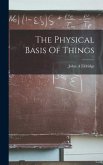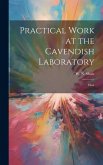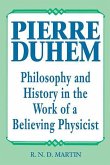"Physics is a remarkably practical science. Not only does it explain how things work or why they don't, it also offers great insight into how to create, improve, and repair those things. Because of that fundamental relationship between physics and real objects, introductory physics books are essentially users' manuals for the world in which we live. Like users' manuals, however, introductory physics books are most accessible when they're based on real-world examples. Both users' manuals and physics texts tend to go unread when they're written like reference works, organized by abstract technical issues, indifferent to relevance, and lacking in useful examples. For practical guidance, most readers turn to "how to" books and tutorials instead; they prefer the "case-study" approach. How Things Work is an introduction to physics and science that starts with whole objects and looks inside them to see what makes them work. It follows the case-study method, exploring physics concepts on a need-to-know basis in the context of everyday objects. More than just an academic volume, this book is intended to be interesting, relevant, and useful to non-science students. Most physics texts develop the principles of physics first and present real-life examples of these principles reluctantly if at all. That approach is abstract and inaccessible, providing few conceptual footholds for students as they struggle to understand unfamiliar principles. After all, the comforts of experience and intuition lie in the examples, not in the principles. While a methodical and logical development of scientific principles can be satisfying to the seasoned scientist, it's alien to someone who doesn't even recognize the language being used"--
Hinweis: Dieser Artikel kann nur an eine deutsche Lieferadresse ausgeliefert werden.
Hinweis: Dieser Artikel kann nur an eine deutsche Lieferadresse ausgeliefert werden.








